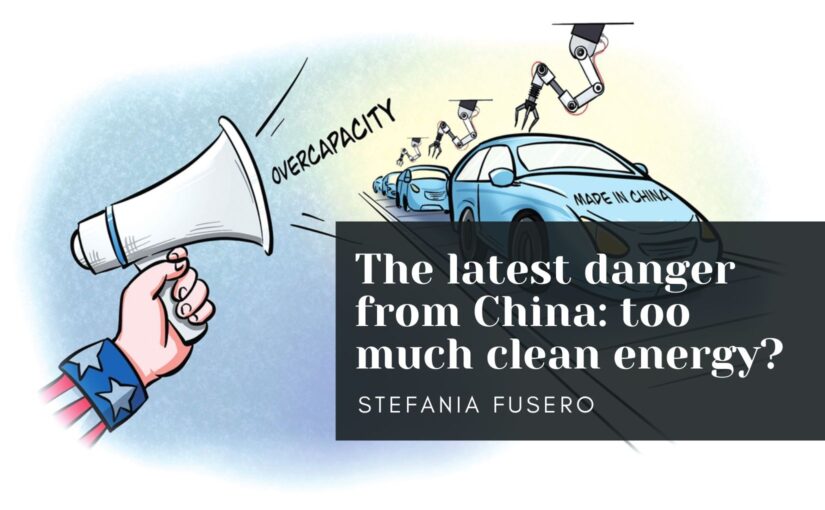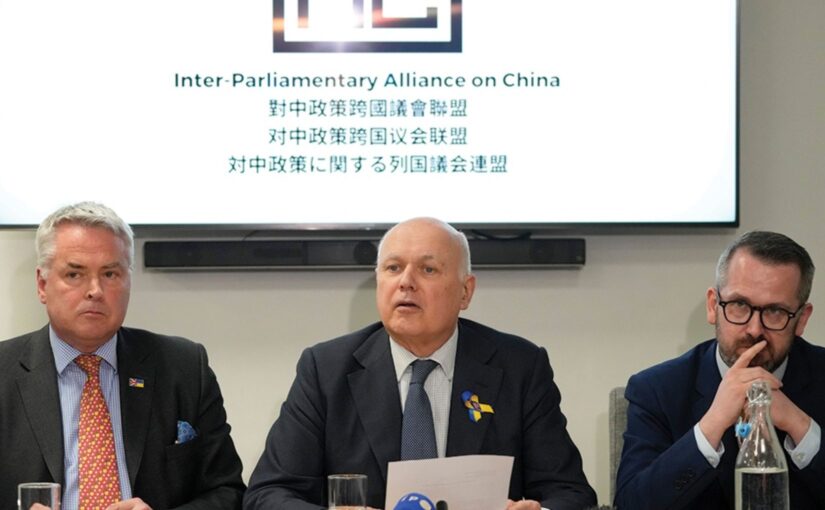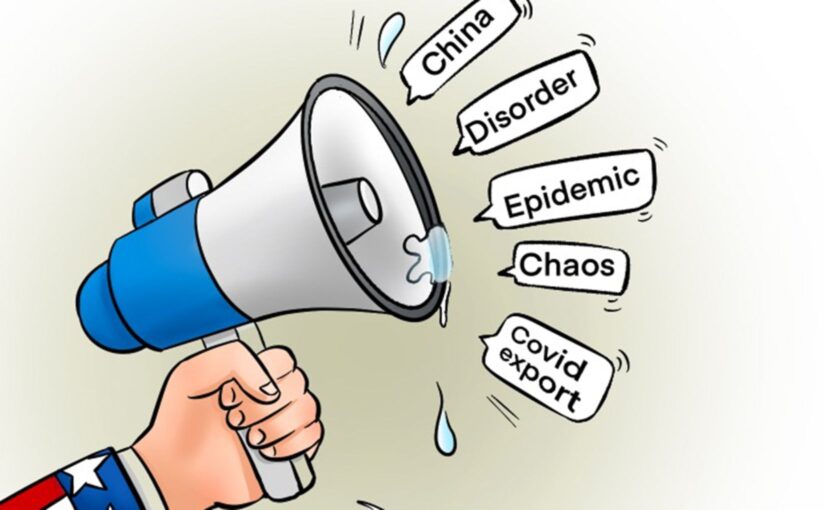The following article by Sara Flounders, originally published in Workers World, discusses the 95 billion dollar “supplemental aid” bill passed by Congress and signed by President Joe Biden on 24 April 2024. Of the $95 billion, $61 billion is allocated to Ukraine, $26 billion to Israel and $8 billion to Taiwan and the Pacific region. Sara writes that the package constitutes “a declaration of war on the world … an ominous and highly publicised military escalation on three fronts.” She continues:
In an era when uncontested US economic, productive and technological hegemony has decisively deteriorated, the only way that US corporate power can assert its dominance is in the military destruction of its rivals. Instigating wars and imposing sanctions are desperate efforts to destroy the emerging poles of development, cooperation and trade in West Asia, Russia and China that are outside of US control.
Sara observes that, as the bill was being signed, US Secretary of State Antony Blinken was in China – “not to promote diplomacy, but to make threats”. Blinken was demanding that China support the US’s unilateral and illegal sanctions against Russia, while back in Washington funds were being assigned to support Taiwanese separatism and stir up tensions in the Taiwan Strait. The hypocrisy is mind-boggling.
The article concludes:
The bill finances a drive toward World War III on three fronts: the U.S.-Israeli genocidal war aimed at Palestine, the US-NATO proxy war against Russia in Ukraine, and preparation for a US-led war in the Pacific against People’s China and the Democratic People’s Republic of (North) Korea.
The powerful global movement that has taken bold steps to stop Israeli genocide will be stronger as it grows to understand that this whole imperialist system is its enemy.
Anyone who thinks that the U.S. policy of continued arming and fully supporting the Israeli genocide is an accident or a mistake need only look at the $95 billion “supplemental aid” bill just passed by Congress and signed by President Joe Biden on April 24.
The same group of war criminals in Washington who back genocide in Gaza also support the NATO-provoked proxy war in Ukraine and maneuvers in the Pacific that threaten war against China.
The U.S. “supplemental” military aid package is a declaration of war on the world. It is an ominous and highly publicized military escalation on three fronts.
In an era when uncontested U.S. economic, productive and technological hegemony has decisively deteriorated, the only way that U.S. corporate power can assert its dominance is in the military destruction of its rivals. Instigating wars and imposing sanctions are desperate efforts to destroy the emerging poles of development, cooperation and trade in West Asia, Russia and China that are outside of U.S. control.
U.S. accelerates aid to Israel
The $26 billion in additional aid to Israel, part of the supplement package, is a public statement of complete support for genocide in Gaza. It confirms U.S. determination to escalate the brutal aggression.
Moreover, it is sending a threat of escalating war to Iran, Lebanon, Yemen and the vast majority of the people of the world who support the Palestinian people’s justified resistance to colonial occupation.
This $26 billion is in addition to Washington’s $4 billion a year allotment to Israel, which has already been committed through 2028, and the over 100 military aid transfers to Israel that are intentionally kept out of the accounting process.
Since World War II, the U.S. has provided more foreign aid to Israel than to any other country. In 2022, 99.7% of those funds went to the Israeli military.
The huge infusion of aid to Israel confirms the decision by U.S. corporate powers to prop up Washington’s primary strategic ally in West Asia. This has been the goal behind the billions of dollars allocated to the apartheid state over decades.
Despite receiving enormous funds and creating massive destruction, Zionist forces have failed to defeat the unified Palestinian Resistance. This is a political blow to Israel and a humiliating setback to U.S. imperialism’s position in the entire region.
For this reason, Israel and some U.S. policy strategists are seeking to widen the war by bombing Iran, Syria, Lebanon and Yemen.
Israeli Prime Minister Benjamin Netanyahu welcomed the billions of dollars in U.S. assistance, writing on X (formerly Twitter) that it “demonstrates strong bipartisan support for Israel and defends Western civilization.” He immediately announced plans to proceed with a major military operation in Rafah.
Funds for humanitarian assistance are supposedly included in the bill. Yet its language stipulates that financial allocations for the United Nations Relief and Works Agency for Palestine Refugees are prohibited. UNRWA is a lifeline for nearly two million people in Gaza and for Palestinians in the West Bank, Jordan, Syria and Lebanon. Without this U.N. agency’s help, there is no way to provide food aid, teachers or medical care.
Continue reading Three US wars threaten World War Three: $95 billion targets Palestine, Iran, Russia and China




















